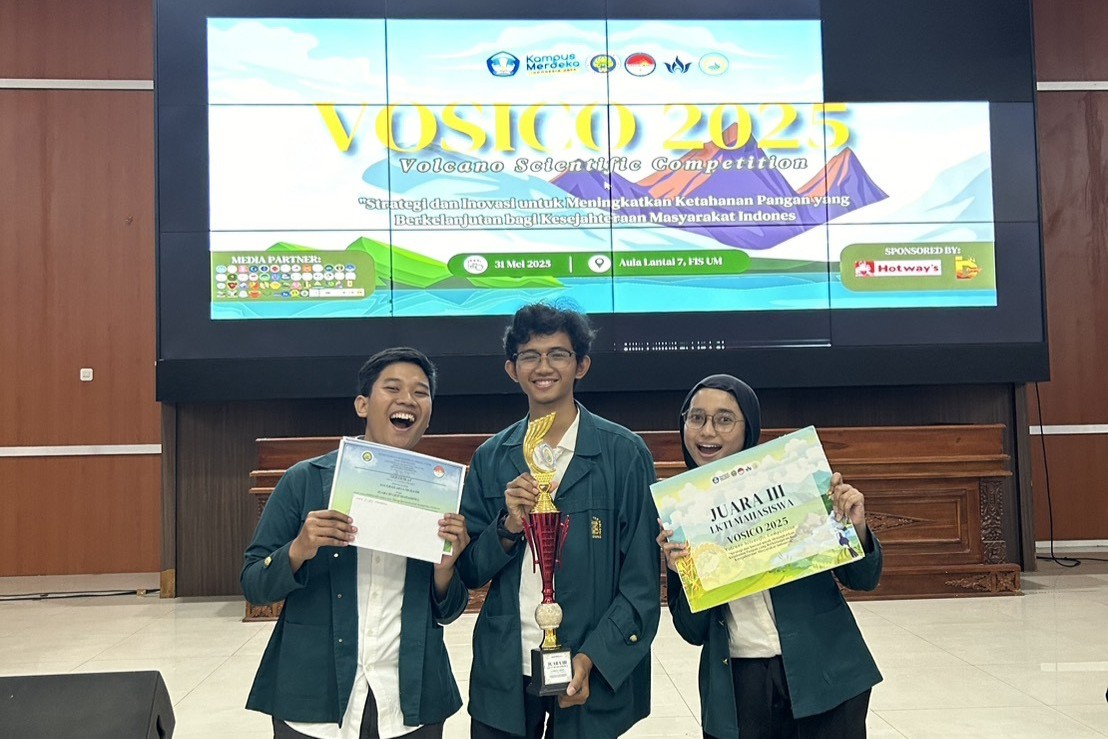Prof. Deana’s Scientific Oration Discusses Organic Compound Applications: From Corrosion Inhibitors to Battery Separators
By Indira Akmalia Hendri - Mahasiswa Perencanaan Wilayah dan Kota, 2021
Editor M. Naufal Hafizh, S.S.

BANDUNG, itb.ac.id – The synthesis of organic compounds forms a fundamental cornerstone of modern chemistry. It not only serves as a substitute for limited natural resources but also facilitates the creation of novel compounds previously undiscovered in nature. This topic was the focus of a scientific oration delivered by Prof. Dr. Deana Wahyuningrum, S.Si., M.Si., a Full Professor from the Faculty of Mathematics and Natural Sciences (FMIPA) at the Institut Teknologi Bandung (ITB). The oration took place on Saturday, May 24, 2025, at the Aula Barat of the ITB Ganesha Campus.
During her scientific address, titled "Functional Organic Compounds and Their Applications: From Corrosion Inhibitors to Lithium-Ion Battery Separators," Professor Deana highlighted the critical importance of developing functional organic compounds as cross-sectoral solutions applicable to diverse fields such as pharmaceuticals, energy, and the environment.
Prof. Deana's research journey in organic compound synthesis commenced during her undergraduate studies at FMIPA ITB. In the early stages of her academic career, she focused on the potential of Indonesian natural resources as raw materials for functional chemicals. Her initial research concentrated on squalene, a compound synthesized from shark liver oil.
Her sustained interest and consistency in organic chemistry led her to pursue master's studies at FMIPA ITB. Concurrently, Prof. Deana also had the opportunity to participate in research activities at the Laboratory of Organic Chemistry, Kanazawa University, Japan, from 1999 to 2000.
While there, Professor Deana delved into asymmetric nucleophilic addition reactions utilizing organometallic reagents. Her primary focus was on the use of (R,R)-diisopropyl tartrate as a chiral auxiliary, enabling the synthesis of compounds with specific chirality; a critical attribute in molecular design for pharmaceutical, medical, and agricultural applications.
At the doctoral level, Prof. Deana continued her research, focusing on the synthesis of imidazole derivatives and evaluating their corrosion inhibition activity on carbon steel surfaces. These compounds function as corrosion inhibitors: chemical agents capable of forming a protective layer on metal surfaces, thereby slowing or preventing the oxidation process.
"Corrosion poses a significant challenge across various industrial sectors, particularly in the oil and gas industry, which involves metal infrastructure in extreme conditions," she stated. Corrosion not only impacts operational safety and efficiency but also results in substantial economic losses and undeniable environmental consequences.
The synthesis of functional organic compounds transcends mere reproduction of natural compounds; it serves as a bridge to innovation relevant to present and future needs. From her early research on steroid derivatives to the development of corrosion inhibitors and materials for clean energy, a consistent theme throughout Professor Deana's scientific journey has been the ability of organic compounds to be precisely modified and designed to address various multidisciplinary challenges.
Prof. Deana further emphasized that organic compound synthesis plays a strategic role in sustainability issues, including the creation of more environmentally friendly and efficient materials that support energy transition. With a strong scientific foundation and broad applications, the synthesis of functional organic compounds will continue to be a crucial pillar in scientific advancement and the improvement of human quality of life.
Reporter: Indira Akmalia Hendri (Urban and Regional Planning, 2021)
Translator: Atika Widya Nurfaizah (Postharvest Technology, 2021)









